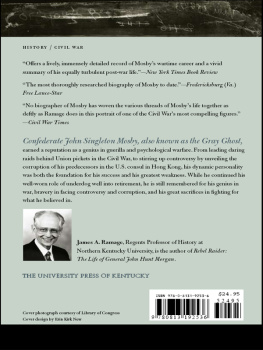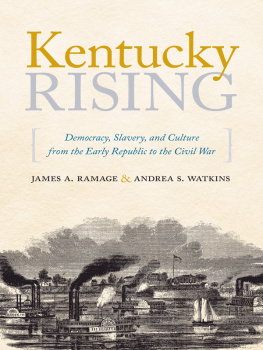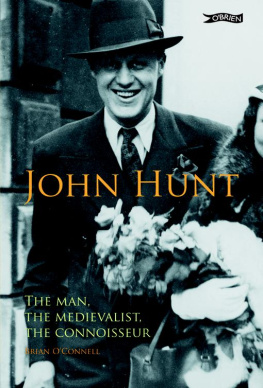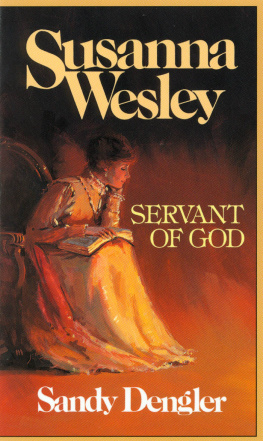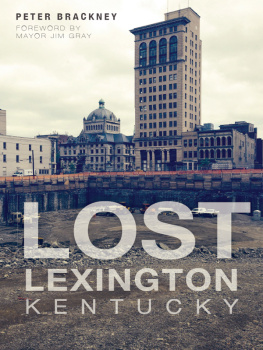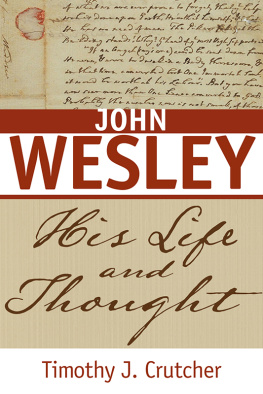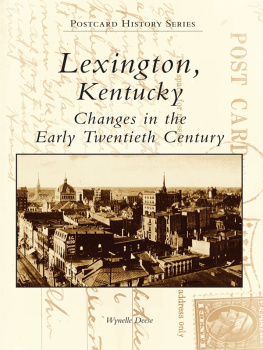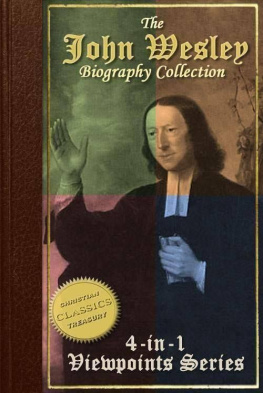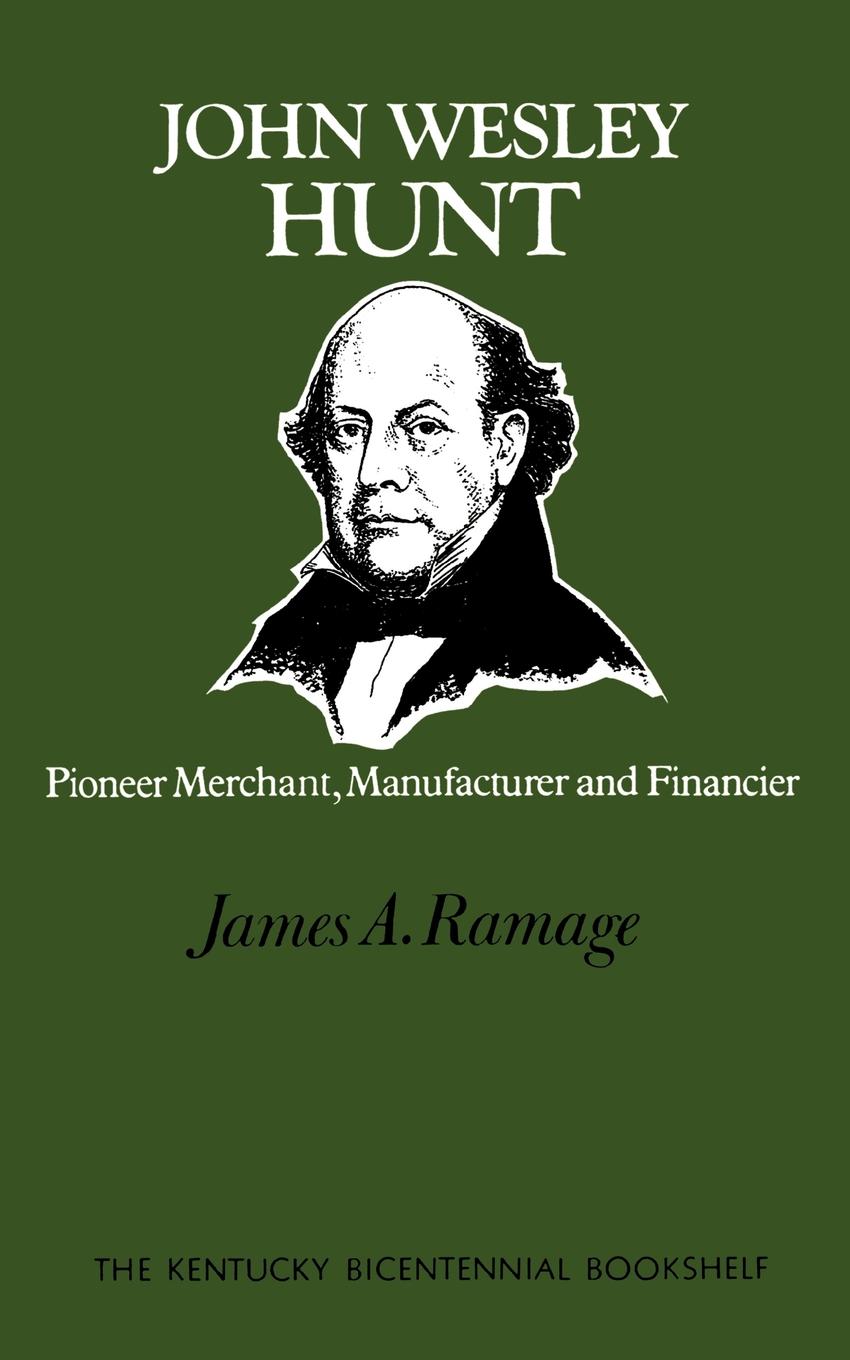JOHN WESLEY HUNT
THE KENTUCKY BICENTENNIAL BOOKSHELF
SPONSORED BY
Kentucky Historical Events Celebration Commission
Kentucky Federation of Womens Clubs
AND CONTRIBUTING SPONSORS
American Federal Savings & Loan Association
Armco Steel Corporation, Ashland Works
A. Arnold & Son Transfer & Storage Co., Inc.
Ashland Oil, Inc. / J. Winston Coleman, Jr.
Convenient Industries of America, Inc.
Corning Glass Works Foundation / Mrs. Clora Correll
The Courier-Journal and The Louisville Times
Covington Trust & Banking Company
Mr. and Mrs. George P. Crounse / George E. Evans, Jr.
Farmers Bank & Capital Trust Company
Fisher-Price Toys, Murray
Mary Pauline Fox, M.D., in honor of Chloe Gifford
Oscar Hornsby Inc.
Office Products Division IBM Corporation
Robert B. Jewell / Lee S. Jones
Kentucky Bankers Association
Kentucky Coal Association, Inc.
The Kentucky Jockey Club, Inc.
The Lexington Womans Club
Lincoln Income Life Insurance Company
Lorillard A Division of Loews Theatres, Inc.
Metropolitan Womans Club of Lexington
Betty Haggin Molloy
Mutual Federal Savings & Loan Association
National Industries, Inc. / Rand McNally & Company
Mrs. Victor Sams / Shell Oil Company, Louisville
South Central Bell Telephone Company
Southern Belle Dairy Co. Inc. / Standard Oil Company
Standard Printing Co., H. M. Kessler, President
Thomas Industries Inc. / Mary L. Wiss, M.D.
Younger Womans Club of St. Matthews
JOHN
WESLEY
HUNT
Pioneer Merchant, Manufacturer, and Financier

JAMES A. RAMAGE

Research for The Kentucky Bicentennial Bookshelf is assisted by
a grant from the National Endowment for the Humanities. Views
expressed in the Bookshelf do not necessarily represent those of the
Endowment.
Copyright 1974 by The University Press of Kentucky
Paperback edition 2009
The University Press of Kentucky
Scholarly publisher for the Commonwealth,
serving Bellarmine University, Berea College, Centre
College of Kentucky, Eastern Kentucky University,
The Filson Historical Society, Georgetown College,
Kentucky Historical Society, Kentucky State University,
Morehead State University, Murray State University,
Northern Kentucky University, Transylvania University,
University of Kentucky, University of Louisville,
and Western Kentucky University.
All rights reserved.
Editorial and Sales Offices: The University Press of Kentucky
663 South Limestone Street, Lexington, Kentucky 40508-4008
www.kentuckypress.com
Cataloging-in-Publication Data is available from
the Library of Congress.
ISBN 978-0-8131-9312-0 (pbk: acid-free paper)
This book is printed on acid-free recycled paper meeting
the requirements of the American National Standard
for Permanence in Paper for Printed Library Materials.

Manufactured in the United States of America.

| Member of the Association of American University Presses |
To Ann
Contents
Acknowledgments
DR. HOLMAN HAMILTON contributed invaluable counsel, stimulating suggestions, and warm friendship. Dr. Mary W. Hargreaves, Dr. James F. Hopkins, and Dr. Carl B. Cone offered helpful criticisms and suggestions when the manuscript was in the form of doctoral dissertation chapters. I express appreciation to Northern Kentucky State College for a research grant which enabled me to broaden the study. Dr. W. Frank Steely has inspired and encouraged me all along the way. Julia Duke Henning gave permission to reproduce the original portrait which belongs to her; Edward James Mathews and the Blue Grass Trust for Historic Preservation permitted the use of reproductions of portraits in their possession; and Joe Munson assisted with photography.
Dr. Jacqueline Bull shared her tremendous knowledge of sources on Kentucky history and was very kind to me during the months when I seemed to be living in the University of Kentucky, library. I am grateful to James R. Bentley of the Filson Club and Roemol Henry of the Transylvania University library for their assistance. I express appreciation to the librarians of the University of Kentucky, the Filson Club, Transylvania University, Kentucky Historical Society, Cincinnati Historical Society, Missouri Historical Society, Mississippi Department of Archives and History, Historical Society of Pennsylvania, American Philosophical Society, and the Free Public Library in Trenton, New Jersey.
Finally and most important, I express deepest appreciation to my wife Ann, who assisted with proofreading and typing and provided gentle, steadfast support.

INTRODUCTION
WHEN JOHN WESLEY HUNT rode into the frontier town of Lexington, Kentucky, in July of 1795, he arrived at an excellent time and place to rise in American business, for Lexington was becoming a major commercial center for pioneers moving westward. At twenty-two he was well equipped to seize the opportunity which lay before him on the frontier. For three generations the Hunts had been merchants in New Jersey and John had learned merchandising from his father, Trentons most prominent merchant. Through the valuable experiences ahead in merchandising, horse breeding, hemp manufacturing, banking, and finance, he was to develop, to an uncommon degree, the ability to predict business trends and to redirect investments at the opportune moment. Psychologically he was ready to face any obstacle and sacrifice any comfort. Making innovations which helped mold the economy of Lexington, the Ohio and Mississippi valleys, and the nation, he became a prototype of the nineteenth-century American entrepreneur. His wealth accumulated to the extent that he was regarded as the first millionaire west of the Alleghenies. A businessman who knew him well was probably not the only one to note that everything he touched turned into gold. One of Lexingtons outstanding citizens himself for over fifty years, John founded one of Kentuckys most prominent families; for generations the Hunts and Morgans were leaders in the social, economic, and military life of Kentucky and the nation.
Hunts family in Trenton sympathized with him about the sacrifice of moving to the frontier. His stepmother wrote: I enter into your deprived & solitary situation with all the disagreeable reflections it will sometimes occasion & wish with all my heart you was blest with a good Wife to lessen, if she could not remove entirely, every ill you have to combat. The comforts of marriage lay ahead, but in 1795 John locked the door at night and slept under the counter in the store. Homesick and lonely, he invited one of his brothers to come live with him and pleaded for more letters from home. Nevertheless, he was where he chose to be. He had failed to make a fortune in a mercantile partnership in Richmond, Virginia, and had failed in commercial shipping in Norfolk. Lexington might be remote from the niceties of the Atlantic coast, but the frontier offered challenge and opportunity.


